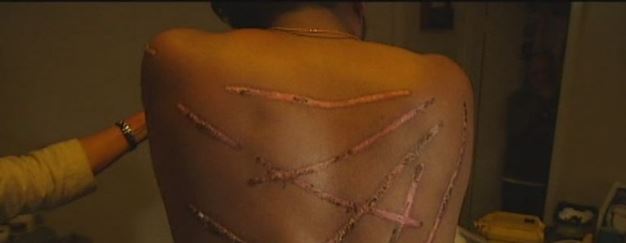Report by the Freedom from Torture.
As Sri Lankans prepare to head for the polls on Monday 17 August, a new report by Freedom from Torture shows that one of the most urgent tasks faced by their new leadership will be to eradicate torture by the military and police, which is deeply entrenched and has tainted the country’s peace since May 2009. The new leadership will need to tackle vested interests in the military, police and intelligence services who until now have resisted any proper reckoning for torture and other grave abuses committed during the civil war and the six years since the conflict ended.
Clinicians at the UK-based charity for torture survivors, one of the world’s largest dedicated torture treatment centres, assess and treat more torture survivors from Sri Lanka than any other country. Tainted Peace: Torture in Sri Lanka since May 2009, is based on doctors’ forensic reports (medico-legal reports) of 148 survivors, which document their physical and psychological injuries from torture carried out from 2009 to 2013. The charity continues to receive referrals for Sri Lankans tortured more recently, including in 2014 and 2015.
Taken together, these medico-legal reports (MLRs) indicate that the army, police and intelligence services, including the Criminal Investigation Department and Terrorism Investigation Department, have continued to perpetrate torture since the end of the civil war. Torture methods they used in the 148 cases included brutal beatings (100 per cent of the 148 cases), burning (78 per cent) and sexual torture (71 per cent), as well as asphyxiation techniques (38 per cent), forms of suspension (45 per cent) and solitary confinement (70 per cent).
Ninety-three per cent of the survivors reported being targeted for torture because of real or perceived links to the Liberation Tigers of Tamil Eelam (LTTE) including through a family member or acquaintance. The overwhelming majority of cases in the study were Tamil (139 out of 148 cases or 94%).
More than a third of the MLRs show Tamils being tortured after returning to Sri Lanka from the UK, usually following a period of study or work; often when visiting their family back home.
Sonya Sceats, Freedom from Torture’s Policy and Advocacy Director, said:
“For decades our clinicians have worked with those who have suffered torture at the hands of the Sri Lankan state and our latest forensic evidence indicates that torture by the military and police is still a major problem, despite the end of the fighting in 2009.
“That torture is deeply entrenched in the Sri Lankan military and policing apparatus is undeniable. The new political leadership elected to work with the President next week must be fearless in pursuing accountability for those responsible, no matter how powerful they are, and must put in place a credible plan to prevent torture in the future.
“Full accountability for torture and other grave abuses is essential and any process requires strong international participation at every stage and level to win the confidence of survivors, including those from the Tamil minority.
“And until Sri Lanka’s leaders show that they have succeeded in eradicating torture, countries hosting Sri Lankan asylum seekers must be highly cautious when assessing their protection claims. A few green shoots of human rights reform should not be taken as a green light for removals.
“The UK needs to take extreme care given our alarming evidence that more than 50 Tamils returning from here with a real or perceived past connection to the LTTE, even at very low levels, were tortured. Many were specifically interrogated about the Tamil diaspora here. Given his personal commitment to promoting human rights in Sri Lanka, David Cameron should ensure that UK asylum policy is updated to bring it into line with the risk we have demonstrated.”
Dr Juliet Cohen, Freedom from Torture’s Head of Doctors, said:
“Sri Lankan torture survivors seen at Freedom from Torture display devastating psychological symptoms, in some cases for years after the torture.
“Survivors’ burns and the injuries from beatings can take years of pain to heal. At the same time they exhibit extremely high rates of symptoms associated with post-traumatic stress disorder and depression , such as nightmares, flashbacks, feelings of worthlessness and thoughts of self-harm. Their intrusive memories of torture and confinement are such that they sometimes find it difficult to imagine different lives or different futures.
“Overall the toll on the mental health of Sri Lankan torture survivors we see is such that most will need to access therapeutic services for many years to come as a result of these experiences. Based on the cases I have seen, I have to conclude that the Sri Lankan army and police have formulated methods of torture that are extremely effective at breaking people down.”
The full report Tainted Peace: Torture in Sri Lanka since 2009 and technical summary will be available online from Thursday 13 August 2015 at www.freedomfromtorture.org, advance copies from Kaye Stearman
